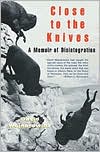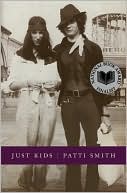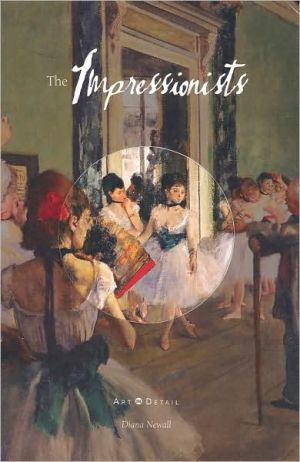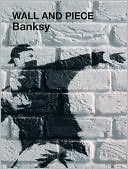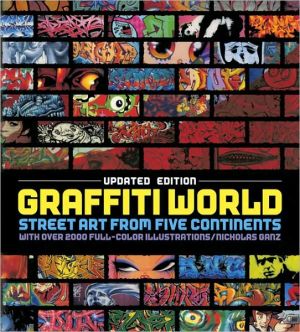Close to the Knives: A Memoir of Disintegration
In Close to the Knives, David Wojnarowicz gives us an important and timely document: a collection of creative essays — a scathing, sexy, sublimely humorous and honest personal testimony to the "Fear of Diversity in America." From the author's violent childhood in suburbia to eventual homelessness on the streets and piers of New York City, to recognition as one of the most provocative artists of his generation — Close to the Knives is his powerful and iconoclastic memoir. Street life, drugs,...
Search in google:
In Close to the Knives, David Wojnarowicz gives us an important and timely document: a collection of creative essays -- a scathing, sexy, sublimely humorous and honest personal testimony to the "Fear of Diversity in America." From the author's violent childhood in suburbia to eventual homelessness on the streets and piers of New York City, to recognition as one of the most provocative artists of his generation -- Close to the Knives is his powerful and iconoclastic memoir. Street life, drugs, art and nature, family, AIDS, politics, friendship and acceptance: Wojnarowicz challenges us to examine our lives -- politically, socially, emotionally, and aesthetically.Publishers WeeklyThe New York-based visual artist and AIDS activist whose work has been targeted by Jesse Helms and the Rev. Donald Wildmon as obscene debuts here with a collection of writings marked by stunning originality and sharp polemics. The alternation of poetic observations of a desolate, at times dissolute life on the road and in squalid urban settings with indictments of a homophobic ``establishment'' might at first appear ill-advised; soon, however, it becomes clear that Wojnarowicz's visual and verbal gifts are inextricably bound to his experience as a homosexual in an American underclass. In images, rhythms and verbal textures that often seem like written analogues to his paintings, Wojnarowicz displays an ability to capture the insensate beauty of much of the American landscape, and light it with a burning human hunger: ``Down along the service road the prehistoric silhouettes of sixteen-wheel rigs ground their gears in the blackness. . . . As each cab swung by me there was a video blaze of tiny green and red ornamental cab lights framing the darkened windows containing a momentary fractured bare arm or dim face filled with the stony gaze of road life.'' In the course of this memoir, the author cooly sketches the outlines of a troubled adolescence--parental kidnapping, drug use, prostitution--making survival alone seem miraculous. What Kerouac was to a generation of alienated youth, what Genet was to the gay demimonde in postwar Europe, Wojnarowicz may well be to a new cadre of artists compelled by circumstance to speak out in behalf of personal freedom. This is a book sublime in poetry, fierce in outrage. Author tour. (Apr.)
\ Publishers Weekly - Publisher's Weekly\ The New York-based visual artist and AIDS activist whose work has been targeted by Jesse Helms and the Rev. Donald Wildmon as obscene debuts here with a collection of writings marked by stunning originality and sharp polemics. The alternation of poetic observations of a desolate, at times dissolute life on the road and in squalid urban settings with indictments of a homophobic ``establishment'' might at first appear ill-advised; soon, however, it becomes clear that Wojnarowicz's visual and verbal gifts are inextricably bound to his experience as a homosexual in an American underclass. In images, rhythms and verbal textures that often seem like written analogues to his paintings, Wojnarowicz displays an ability to capture the insensate beauty of much of the American landscape, and light it with a burning human hunger: ``Down along the service road the prehistoric silhouettes of sixteen-wheel rigs ground their gears in the blackness. . . . As each cab swung by me there was a video blaze of tiny green and red ornamental cab lights framing the darkened windows containing a momentary fractured bare arm or dim face filled with the stony gaze of road life.'' In the course of this memoir, the author cooly sketches the outlines of a troubled adolescence--parental kidnapping, drug use, prostitution--making survival alone seem miraculous. What Kerouac was to a generation of alienated youth, what Genet was to the gay demimonde in postwar Europe, Wojnarowicz may well be to a new cadre of artists compelled by circumstance to speak out in behalf of personal freedom. This is a book sublime in poetry, fierce in outrage. Author tour. (Apr.)\ \ \ \ \ Library JournalWojnarowicz is a controversial contemporary artist who drew national attention when the NEA withdrew a grant for the artist's gallery, Artist's Space, in response to the lacerating essay he wrote about AIDS to accompany the show. He later sued the Reverend Donald Wildmon for copyright infringement and misrepresentation for using excerpts from his works when testifying before Congress. The book deals with subjects that arouse varied responses but rarely indifference. This very angry young man, the product of a lifetime of abuse inflicted by himself as well as others, is a traveler on the road to emotional and physical disintegration. Neither an autobiography nor essays, the work consists of segments, of incidents and images, some outrageous, some moving. It is an attempt to afford the reader a glimpse into outsider society but does so in a way that seems to aim more at alienation than amity. There is great pain here and a plea for compassion, but the rage and fear of which he accuses the establishment seems as much an echo of his own voice as it is of outside reality.-- Paula Frosch, Metropolitan Museum of Art Lib., New York\ \
